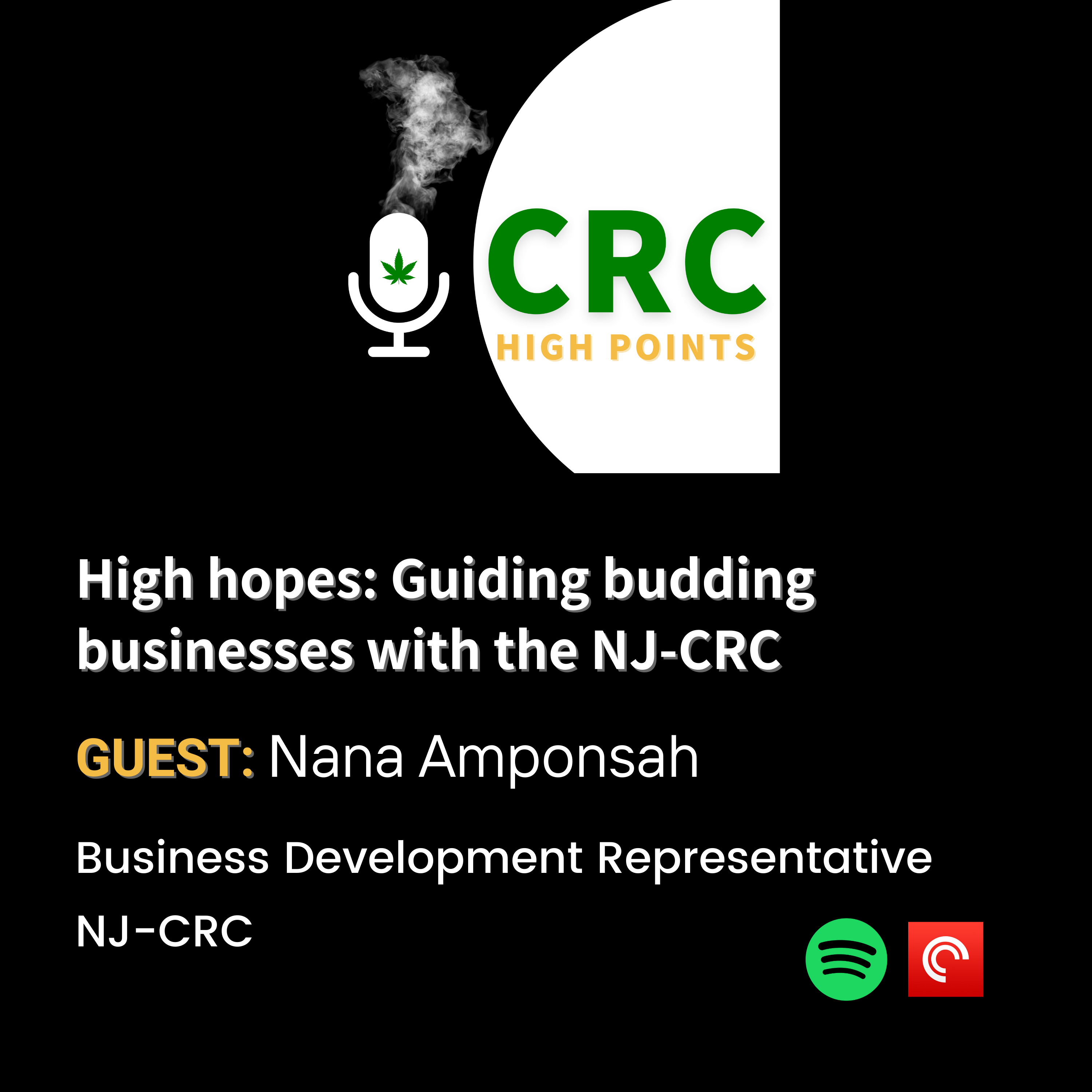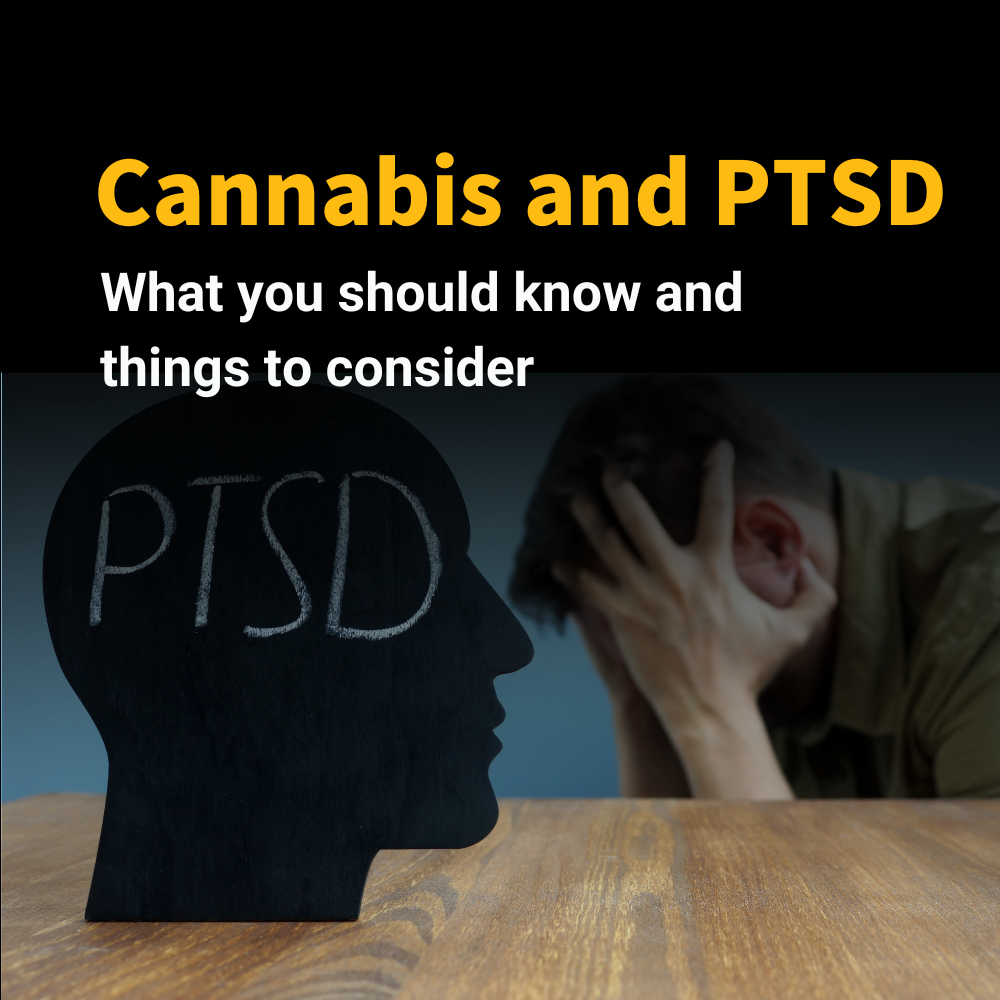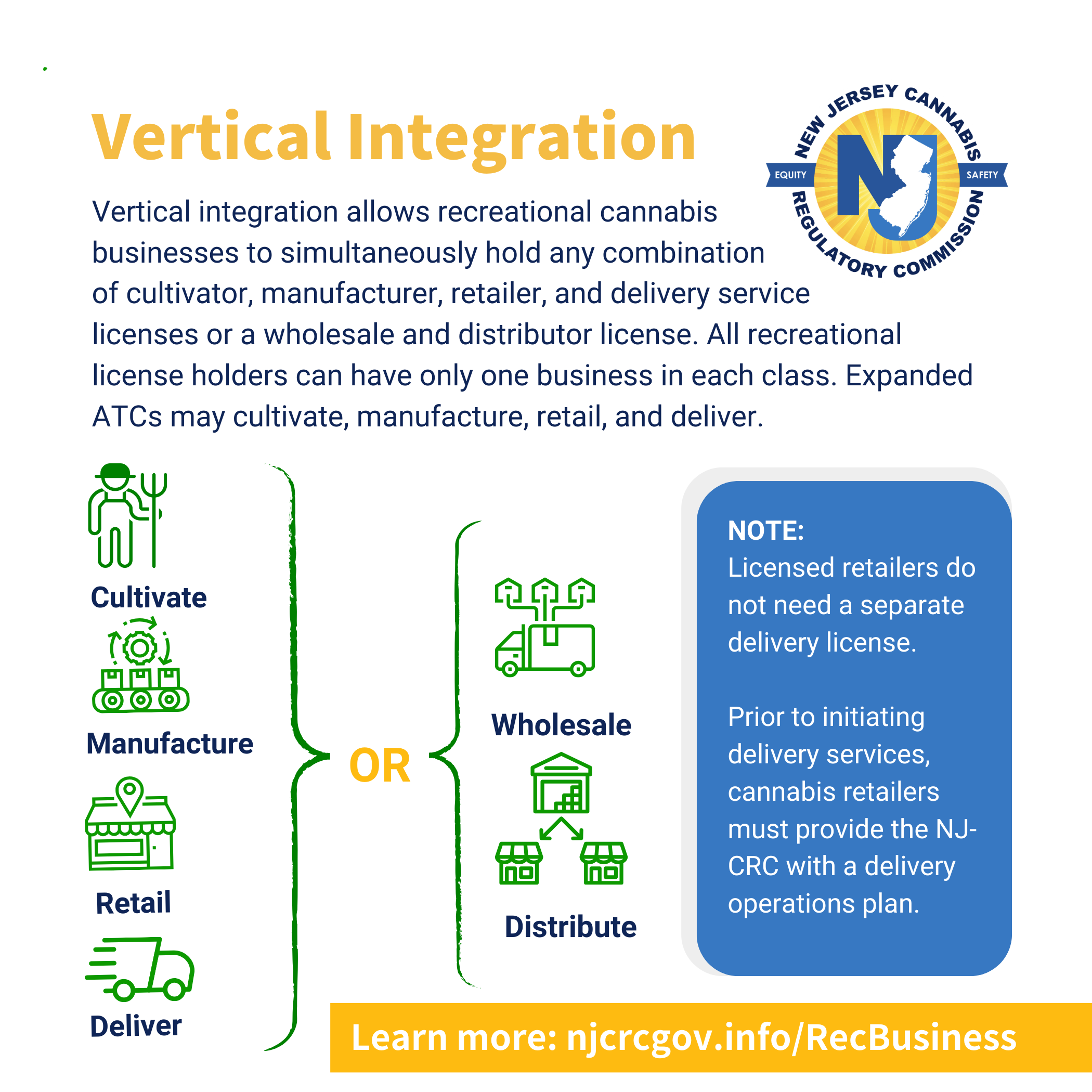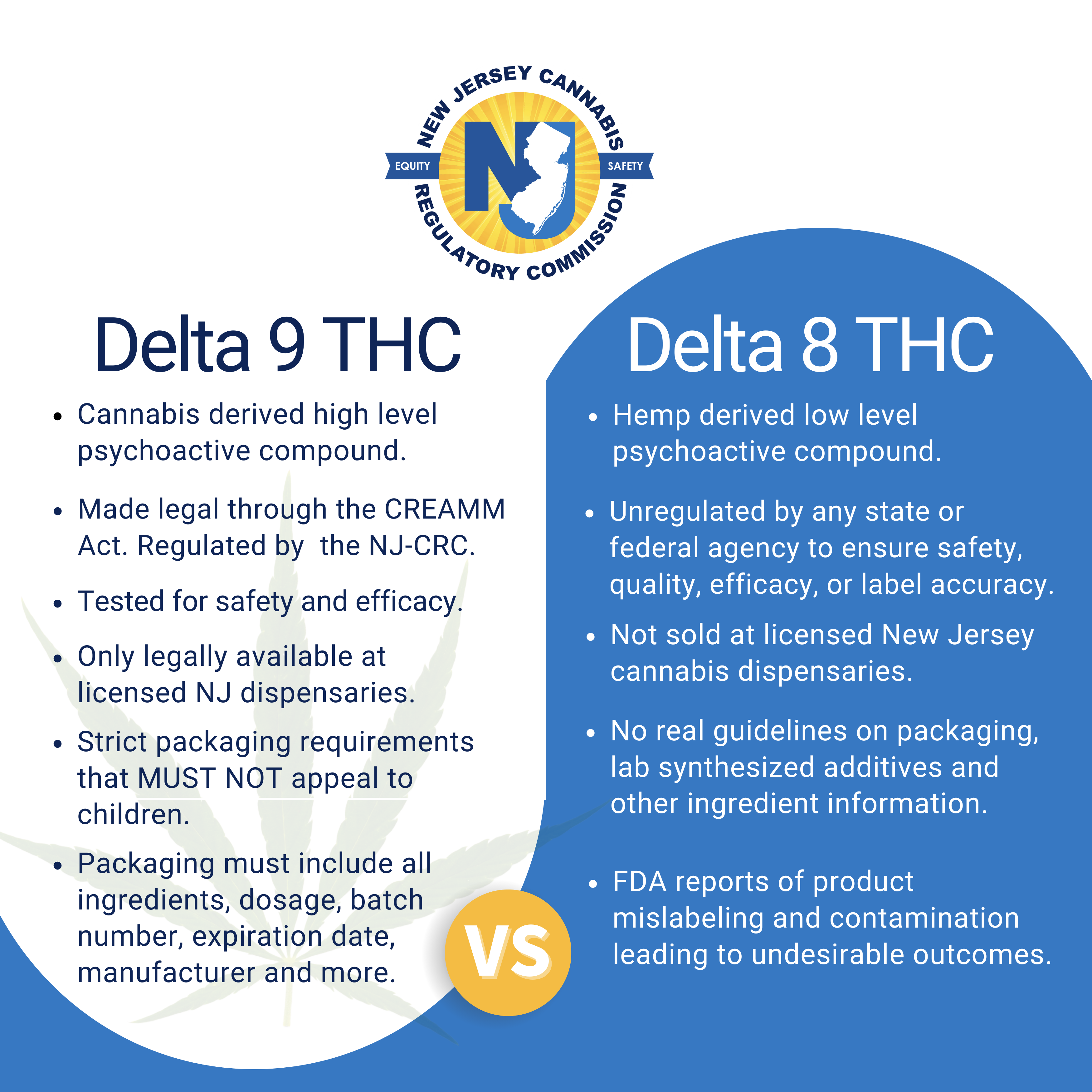
Social Equity at the NJ Cannabis Regulatory Commission
The war on drugs has disproportionally affected Black and Brown people and their neighborhoods. Even as cannabis legalization expands across the country, the ill effects are still evident. According to the ACLU, on average a Black person is 3.64 times more likely to be arrested for marijuana possession than a white person, even though Black and white people use marijuana at similar rates. This disparity is why social equity is central to the Cannabis Regulatory, Enforcement Assistance, and Marketplace Modernization Act (CREAMM Act), and to the application rules created by the New Jersey Cannabis Regulatory Commission.
It is an essential aspect of the Commission's work to help repair the damage done to people and neighborhoods that were marginalized and subjected to mass criminalization during cannabis prohibition. Our aim is to do this through two primary initiatives:
- the prioritization of social equity businesses in the cannabis business licensing process, and
- the investment of tax revenues raised from cannabis sales into communities negatively impacted by cannabis prohibition.
What are Social Equity Businesses?
Social Equity Businesses are owned by people who have lived in an Economically Disadvantaged Area of the state or who have convictions for cannabis-related offenses (expunged or not). Social Equity applicants are prioritized in the business license application process. This means that these applications are reviewed before all other applications, regardless of when they are received. All applications are accepted on a rolling basis – there is no deadline. Social equity microbusinesses are considered first, then social equity standard businesses, then those applying for conversion from conditional to an annual license. In an economic environment where resources such as real estate and capital are finite, this prioritization helps to level the field for social equity applicants.
So Far, How Many Applications Submitted Qualify as Social Equity Businesses?
To date, 375 of the 1,538 applications received are social equity applicants -- this includes applications across all classes: cultivator, manufacturer, wholesaler, distributor, retailer, delivery, and laboratory testing. Of the 375 applications received, 237 have been granted conditional licenses, nine have been approved for conversions to annual, and one has been approved for an annual license. The remaining 128 applications are in various stages of the review process, including 68 that have received cure letters with issues to resolve.
All 375 social equity applicants qualify for the designation based on living in an economically disadvantaged area for the last 5-10 years, and 247 of them have prior marijuana convictions. Of those with prior marijuana convictions, 153 have been granted conditional approval licenses, eight have been approved for an annual conversion, and one has been approved for an annual license. The remaining applications are currently being processed.
What is the Social Equity Excise Fee?
The CREAMM Act stipulates that a fee, the Social Equity Excise Fee (SEEF), be collected by cannabis cultivators when they sell or transfer products to any other license class. The Social Equity Excise Fee will raise funds that can be appropriated for initiatives such as educational support, economic development, and social support services for those persons and communities harmed by the criminalization of cannabis.
The SEEF rate may be adjusted annually by the New Jersey Cannabis Regulatory Commission and is currently set at one-third (1/3) of one percent (1%) of the statewide average retail price of cannabis. The 2023 SEEF rate is $1.52 per ounce. This rate is based on the statewide average retail price of an ounce of usable recreational cannabis between April 2022 and August 2022.
How Will SEEF Funding be Used?
The CREAMM Act also stipulates that a portion of SEEF revenue must be invested into initiatives such as financial support for individuals in Impact Zones. Impact Zones have an average unemployment rate of 32%, 77% more marijuana arrests, and a 34% higher Crime Index, when compared to other New Jersey communities. Of the state’s 565 municipalities, 87 qualify as Impact Zones.
So far, the CRC has directed cannabis tax dollars to fund the Cannabis Training Academy, run by the New Jersey Business Action Center. The Cannabis Training Academy is the only program of its kind in New Jersey. It provides no-cost, online, practical application guidance for special designation candidates. It is self-directed, so participants can go at their own pace. The program will be taught by people already active in the cannabis space and will include live Q&A and mentoring. The Academy is charged with guiding people through the application process and providing them with business skills that will boost their success and make them more attractive to investors.
In 2022, three SEEF meetings were held. The public was invited to share thoughts and ideas on how the tax revenue should be used. Following those meetings, and based on public opinion, the CRC made recommendations to the Governor's office that fall into these categories:
- economic development,
- justice reinvestment,
- public health, and
- workforce development and education. See the full report here.
Feedback from SEEF meetings held in November 2022 and January 2023 will inform the Commission’s recommendations to the Governor and Legislature ahead of budget negotiations for the fiscal year 2024. The full videos and written public comments from all the public hearings on how to spend revenue from Social Equity Excise Fees may be viewed here.
Final say regarding the use of SEEF dollars rests in the hands of lawmakers.
Previous Blog Posts

High Hopes: Guiding budding businesses with the NJ-CRC
09/5/2025
Nana Amponsah, business development representative at NJ-CRC, talks about her role, as part of the Office of Diversity & Inclusion, in identifying challenges cannabis entrepreneurs face, providing assistance to applicants and new businesses wherever possible, and acting as a liaison between cannapreneurs and other state agencies that provide support. She also explains how NJ cannabis business development differs from other fields, emphasizing the continuous need for support.

Tips for SMART Gatherings This Holiday Season
11/26/2025
The holidays are a time for food, fun, laughter, and connecting with the people who make life sweeter. And as more adults in New Jersey choose to enjoy, or gift legal cannabis during the season, the NJ-CRC has launched its second safe-use campaign, S.M.A.R.T., to help keep celebrations (relatively) stress-free. S.M.A.R.T. is an easy way to remember the basics of responsible cannabis use, especially when travel is constant, roads are chaotic, homes are busy, and curious little ones are wandering.

Cannabis and PTSD
10/20/2025
Everyone feels pain at some point—whether it’s a sore back after a long day, a pounding headache, or stomach cramps that just won’t let up. But for some people, pain isn’t temporary. It’s a constant part of daily life. Anxiety disorders are the most common qualifying condition for New Jersey’s Medicinal Cannabis Program (MCP). However, various forms of pain also rank highly on the list of qualifying conditions. Specifically, chronic pain related to musculoskeletal disorders is the second most common condition, migraines are fourth, and chronic pain originating from visceral sources ranks fifth.
 Official Site of The State of New Jersey
Official Site of The State of New Jersey


